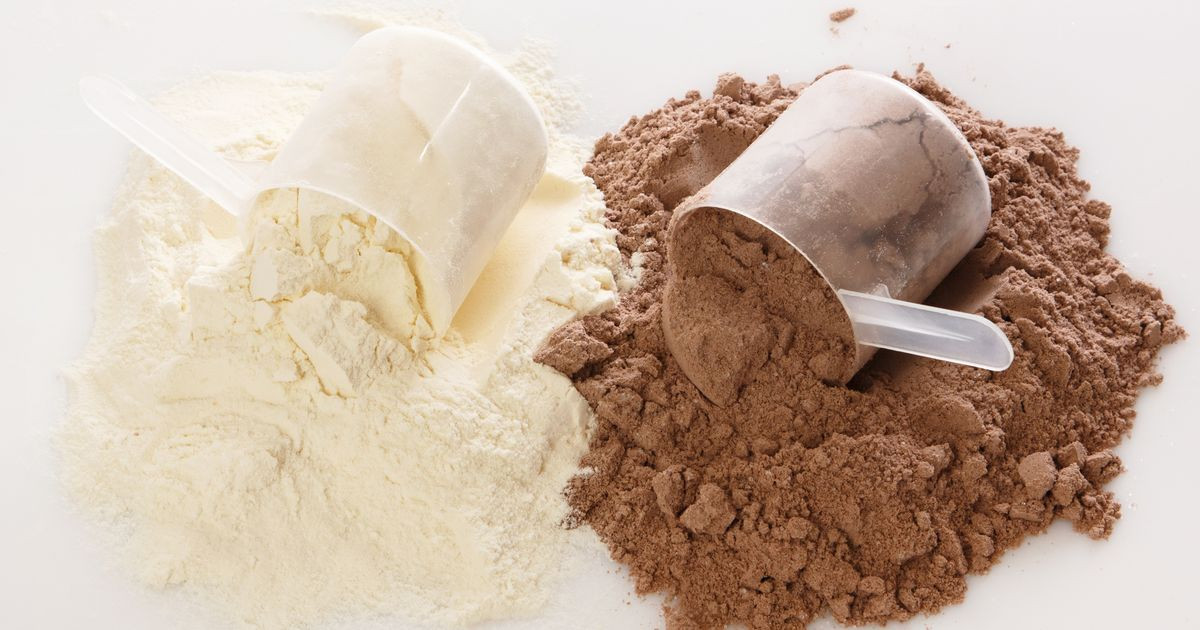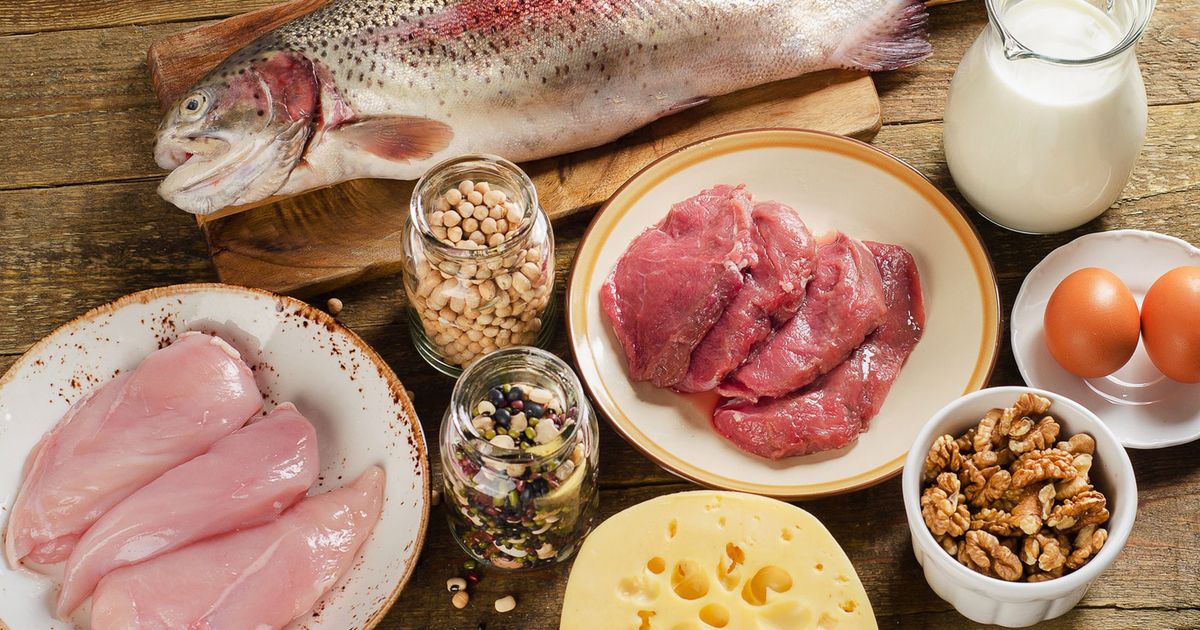The Essential Guide To Protein
Protein is an incredibly essential nutrient, but opinions often differ as to just how much of it is needed in a healthy diet. Protein is the main building blocks of the body and is used to make muscles, tendons, organs, skin, enzymes, hormones, and other molecules.
But what exactly is protein? Can it be found in vegetarian and vegan diets? Can someone consume too much protein? Where is it found? Learn the answers to all of these questions and many more in this guide.
What Exactly Is Protein?

Protein is a macronutrient not only crucial for building muscle but also has a vital role in many aspects of the body. A healthy, lean person’s body is composed of roughly sixty-two percent water, sixteen percent fat, six percent minerals, less than one percent of carbohydrates, and sixteen percent protein. But what is protein?
Protein is made of amino acids, which are commonly found in meats and animal products but can also be acquired through nuts and legumes. These amino acids combine to form a protein which is used to help the body grow, break down food, repair tissue, and perform many other body functions.
Now that you know what protein is, keep reading to learn how much is required throughout the day.
How Much Is Needed?

The Dietary Reference Intake (DRI) for protein each day is 0.8 grams of protein for every kilogram of body weight or 0.36 grams per pound. On average it is estimated men should consume fifty-six to ninety-one grams of protein each day and women should consume forty-six to seventy-five grams every day. However, if someone is striving to gain weight, it has been reported there should be one to 1.5 grams of protein for every pound of body weight.
To obtain this amount try eating high-protein foods, which include steak, lean ground beef, pork chops, skinless chicken breast, turkey breast, sockeye salmon, and yellowfin tuna. Non-meat options for high-protein foods include greek yogurt, cottage cheese, eggs, two percent milk, navy beans, lentils, peanut butter, assorted nuts, quinoa, and edamame.
Next, find out how protein can help gain muscle and strength.
Protein Helps Gain Muscle & Strength

The reason so many individuals at the gym have protein shakes when they workout is because adding more protein can increase muscle gain, increase strength, and improve performance when weight training.
Protein is used for growth and building of new tissue and to repair broken or torn tissue. When the body lacks protein, it begins to break down muscle tissue to receive its daily requirements. It is also important to time protein consumption to maintain a positive nitrogen balance and stay in an anabolic state.
Take in protein every three to four hours over the course of five to six meals, or three meals and two to three high protein snacks or shakes. It is also essential to have a small meal before bed, as the body generally goes into a catabolic state at this point.
What is this talk of anabolic and catabolic? Keep reading to find out.
Anabolic And Catabolic States

Anabolism and catabolism are both two metabolic processes. The anabolic state is a metabolic process that uses energy to build molecules that the body needs. The anabolic reaction causes small molecules to join together to make larger ones and generate complex molecules such as proteins, carbohydrates, lipids, and nucleic acids. When exercising in an anabolic state, the body begins to build muscle mass.
The catabolic state is the process of releasing energy and breaking down large molecules into smaller molecules. Catabolic exercises are good at burning fat and calories to shed a few pounds.
Now that you know about the anabolic and catabolic states, continue reading to learn about the most common types of protein.
Most Common Types Of Protein

There are many different kinds of protein, each with their own purposes. One of the most basic and common forms of protein is whey concentrate which can often be found in protein tubs. Whey protein powder is inexpensive and great for beginners looking to add more protein to their diet. However, whey protein can sometimes be hard to digest, which can leave some individuals feeling gassy and bloated.
Bodybuilders do not often use soy protein, but it is an excellent source of protein for vegans and vegetarians. This kind of protein has many benefits, such as a high level of glutamine which aids in recovery, arginine which dilates blood vessels, and branched-chain amino acids (BCAA), which also help recovery time. It also supports a healthy cholesterol profile and can boost thyroid production, speeding up the metabolism and aiding in fat loss.
Casein protein is best used before going to sleep as it takes a long time to break down (typically five to seven hours) and therefore the body can remain in an anabolic state throughout the night.
